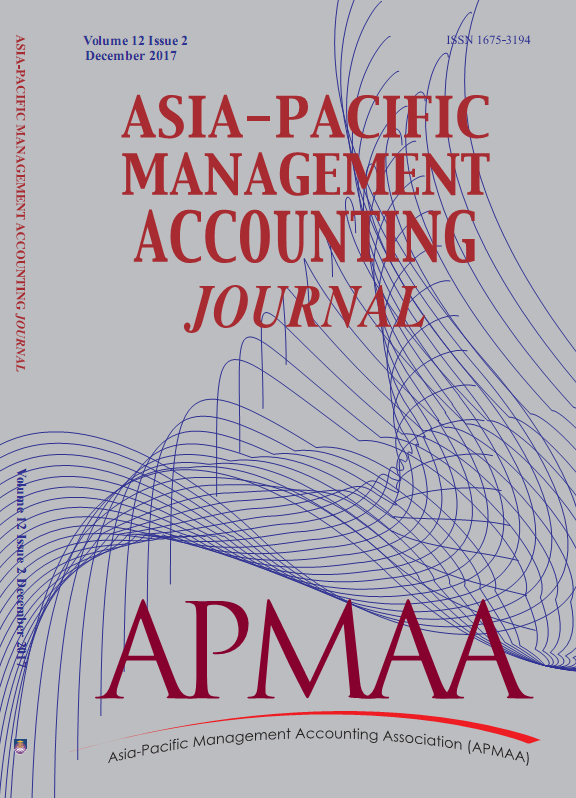Volume 15 Issue 3, December 2020
ARTICLE INFO
Article History:
Received: 5 June 2020
Accepted: 14 July 2020
Published: 31 December 2020
ASIA-PACIFIC MANAGEMENT ACCOUNTING JOURNAL, VOLUME 15 ISSUE 3
DESIGN AND EMPIRICAL TESTING OF A FRAMEWORK FOR IMPLEMENTING PFABC COSTING
Mohammad Namazi1 and Zahra Sadat Hosseini2
1Shiraz University, Iran
E-mail: This email address is being protected from spambots. You need JavaScript enabled to view it.
2Shiraz University, Iran
E-mail: This email address is being protected from spambots. You need JavaScript enabled to view it.
ABSTRACT
Performance Focused Activity Based Costing (PFABC) system is the third generation of the ABC systems. The major purposes of this study were: 1. to design a framework for identifying constructs that should be selected for successful implementation of the PFABC system? And empirically test it and 2: to explain why there is a gap between theory and practice of this system? In achieving these objectives, content analysis, contingent theory, and innovation theory were employed. The statistical population consisted of all Tehran Stock Exchange (TSE) companies. In 2018, 450 questionnaires were sent to (TSE) corporate executives and 262 usable responses were collected. The Structural Modeling Equations (SME), SPSS and SMARTPLS software were employed to test related hypotheses and analyze the results. The results of the study clearly showed that environmental constructs (0.997) had the greatest impact, followed by cost constructs (0.996), technological constructs (0.993) and finally organizational constructs (0.981), respectively. However, there was no significant relationship between the desire to save, system integration, time of system implementation, and implementation of the PFABC costing system. These constructs are also the major imputes responsible for the existence of a gap between theory and practice. The application of ABC, TDABC, and PFABC among TSE firms, was 6.1%, 0.04% and 0%, accordingly. Hence, there is a huge gap between theory and practice.
Keywords: PFABC costing system, organizational construct, technological construct, environmental construct, cost construct, SE
Keywords: PFABC costing system, organizational construct, technological construct, environmental construct, cost construct, SE


